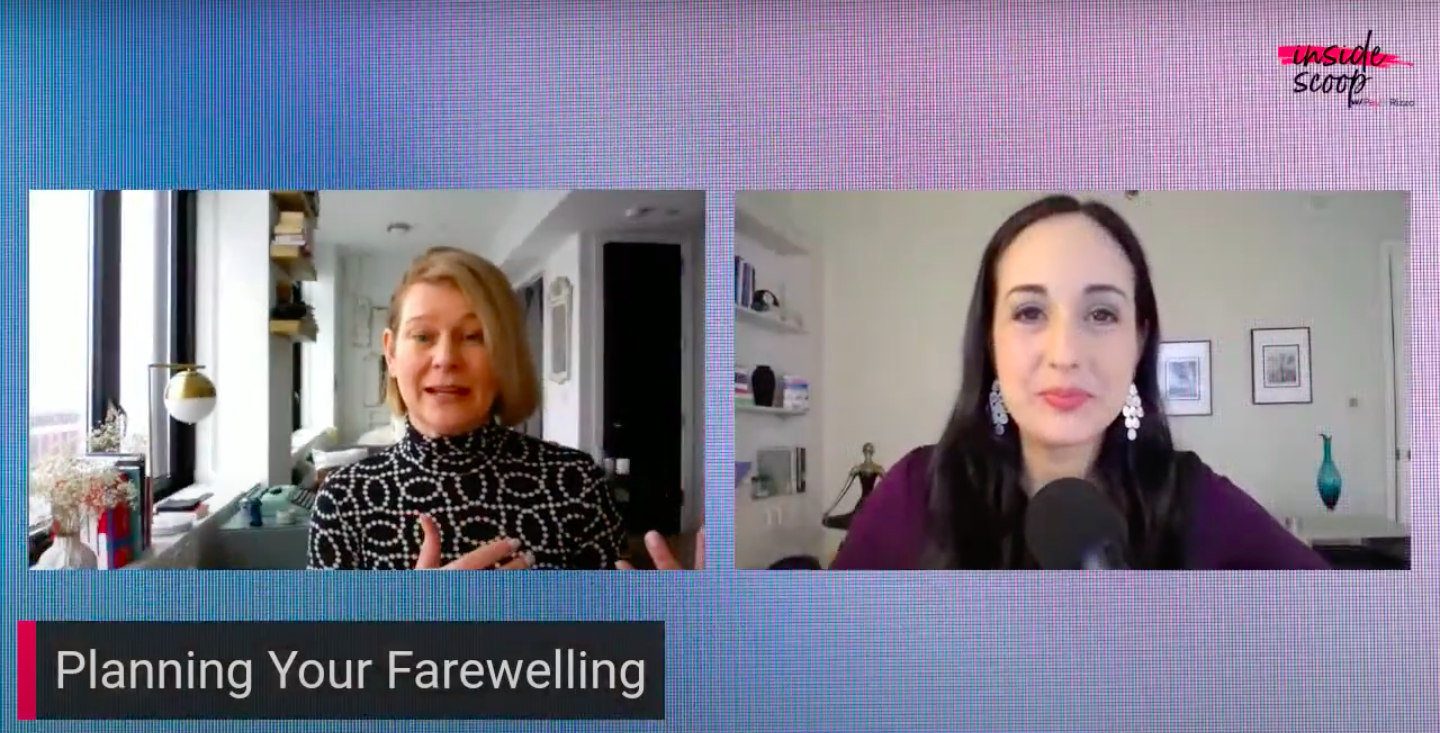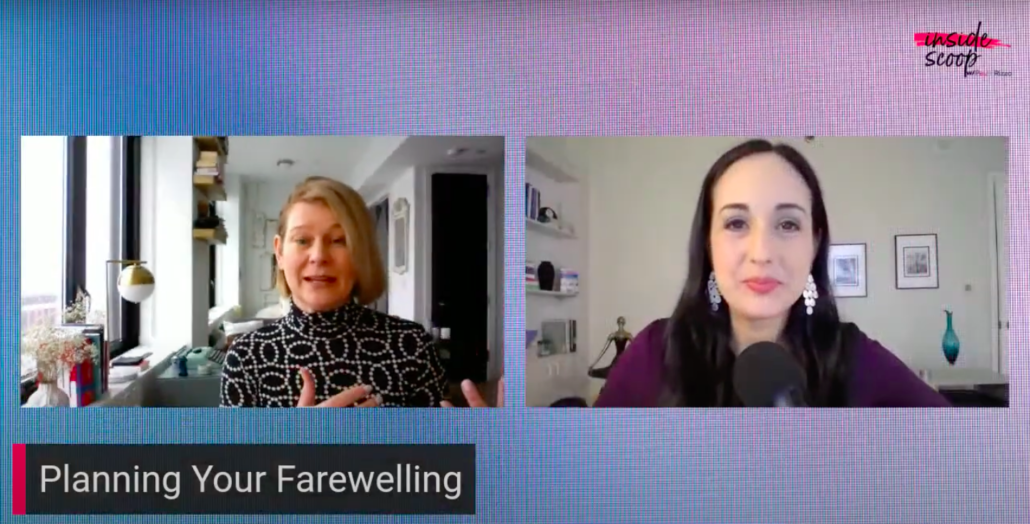
End-of-life planning is a to-do topic that even the most comprehensive list-makers may have avoided.
Whether it’s because you’re uncomfortable talking about death or because it seems too far away to begin preparing for, many people just don’t create plans beyond a simple will or life insurance. (If that!) But I do know you’re curious about it, because this guest post that I featured in 2012 called, “Questions to Ask Your Mother (Or Father) Before It’s Too Late”remains one of the most clicked on posts on my site.
Karen Bussen knows there is more to death planning than files and forms. She’s the founder of Farewelling, a death and end-of-life planning agency. Karen’s mission is to give people the resources they need to create a plan that will take the pressure off their loved ones and honor their life.

While this might sound morbid, it’s just practical. And it’s also an important gift to leave for your loved ones as they grieve. Karen decided to pivot from her career as a wedding planner to get into death planning when her sister became ill and they saw there was a need to fill.
Here are Karen’s tips for creating a meaningful “farewelling”:
1) Consider what you love right now.
Your end-of-life celebration should reflect the things that you value most, whether that’s organizations you were involved with or passions you have. Providing for donations for those things in your will or creating a time for them to be acknowledged in your memorial service is key.
2) Plan it like you would any other event.
Karen says that the planning process for your funeral should include the same things you’d think about for a wedding or big birthday party.
- What will you wear?
- What will the dress code be?
- What music do you want to be played?
- What refreshments will be served, if any?
These details will all contribute to the way your funeral honors your life. Karen says that she’s worked with families who have gotten creative, from serving recreating special menus for a foodie to a memorial run honoring a marathoner.
3) Create a legacy.
Karen says that there are lots of ways to keep your memory alive for your loved ones. That can mean physical objects that are important to you, but Karen also recommends checking out apps that allow you to record answers to questions about your life for future generations. You can then organize those files through Farewelling.
4) Broach the topic with care — but don’t shy away from it.
If your family doesn’t speak openly about death, it can be hard to bring up your plans or ask loved ones what their plans are. Karen suggests introducing the subject without fanfare. She suggests saying something like, “”Hey, I just did this crazy thing. I made a Farewelling file and I mean, you’re my parents, but I was wondering, would you look at this? What do you think about this?” Be clear that this doesn’t mean you plan for them or yourself to pass away anytime soon — it’s just to make sure everything is in place for the future.
She even suggests throwing a “Farewelling Fete” as she featured in a Farewelling: The Podcast episode.
While planning for your death is never a happy topic, it doesn’t have to be completely sad and morbid. Bringing your sense of style, passions, and loved ones into the planning process can make it more reflective of who you are and how you want to be remembered.
If you want to start your Farewelling planning for yourself or a loved one, you can check out Karen’s free checklist here.
____
BONUS FREEBIE: Want even more ways to stay organized, productive and less stressed? Click here to get access to my List-Making Starter Kit. It will boost your efficiency and get you back to doing more of the things you love.


